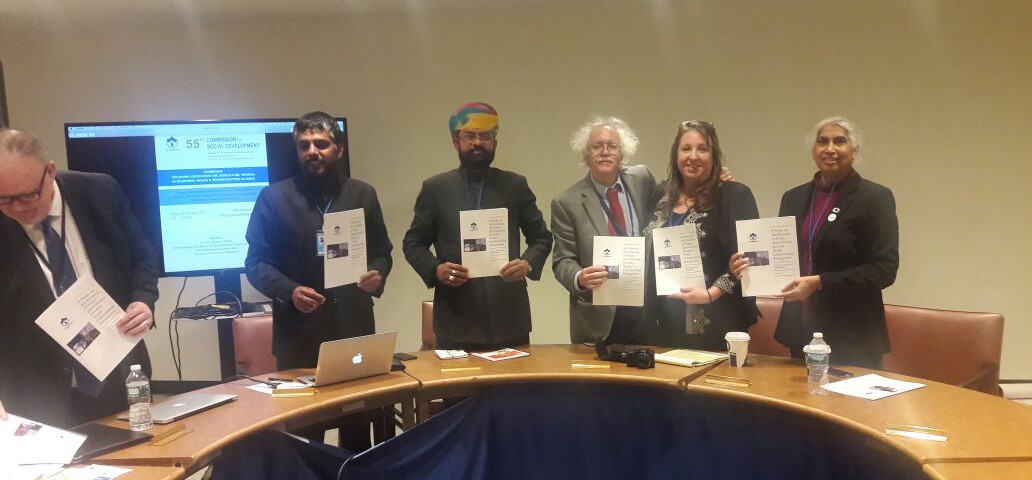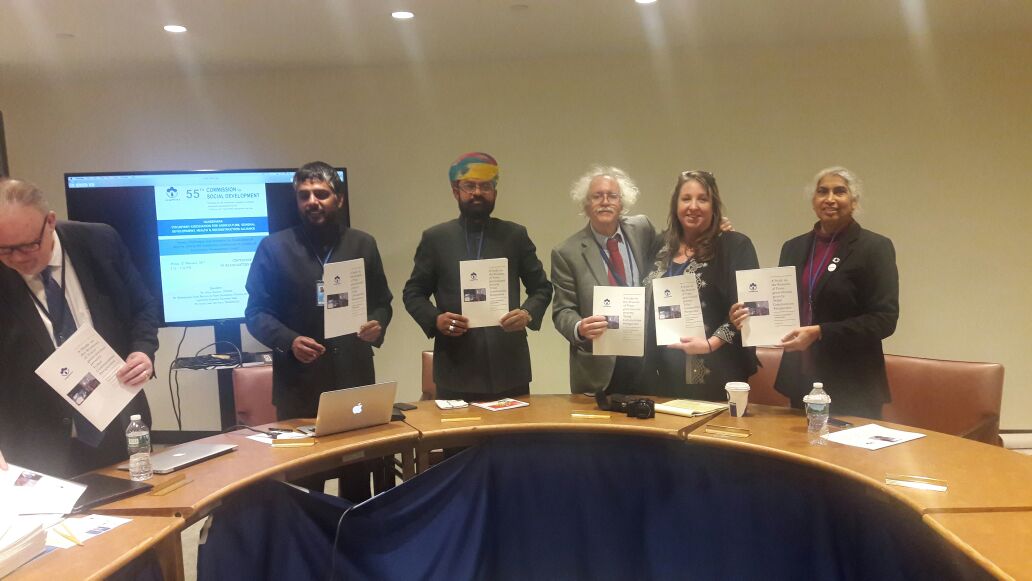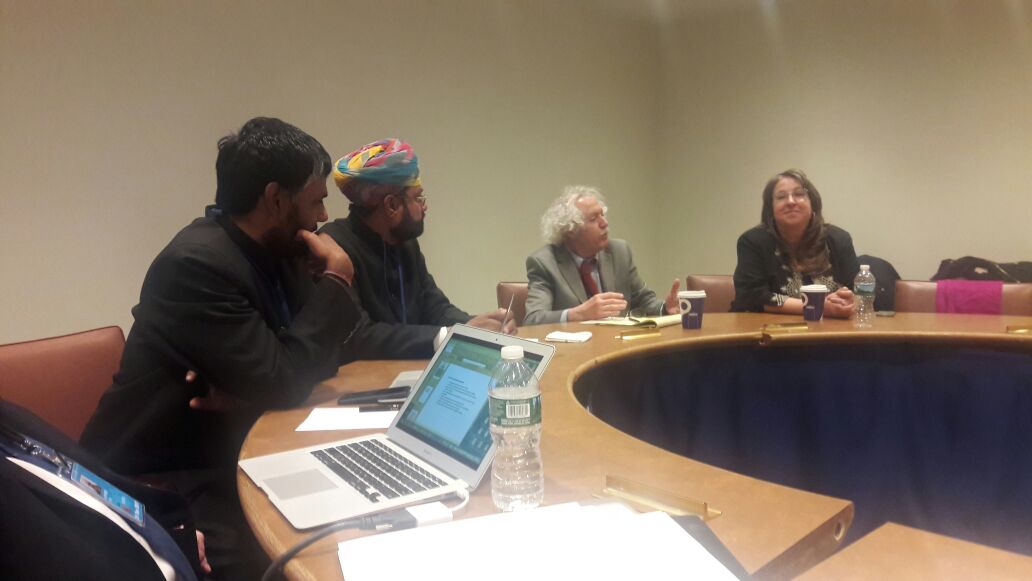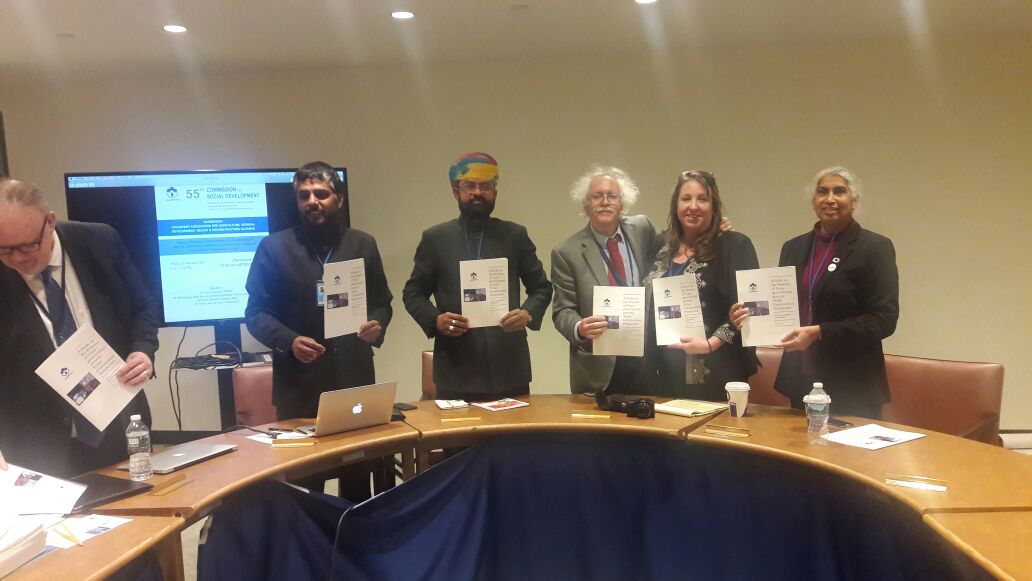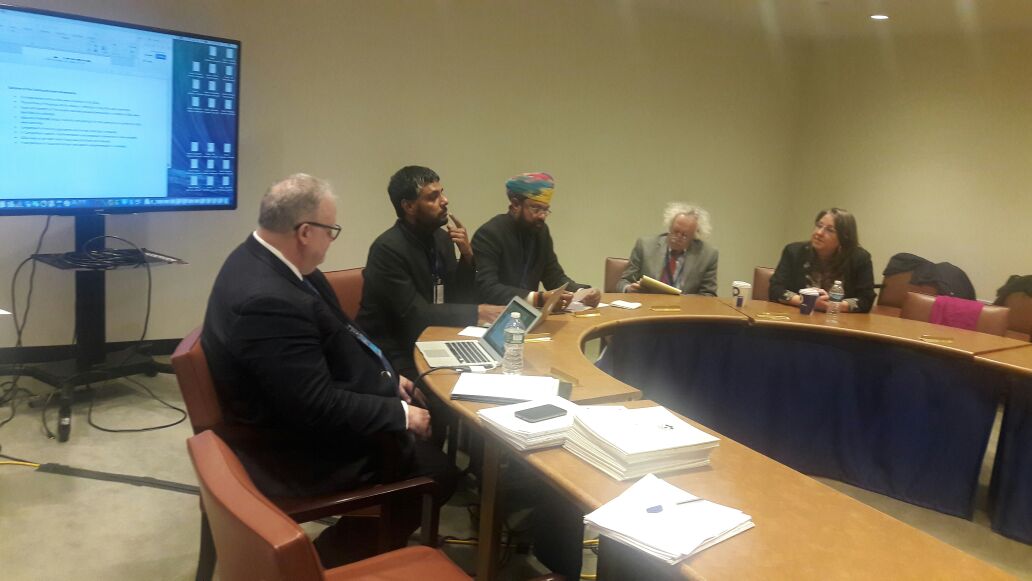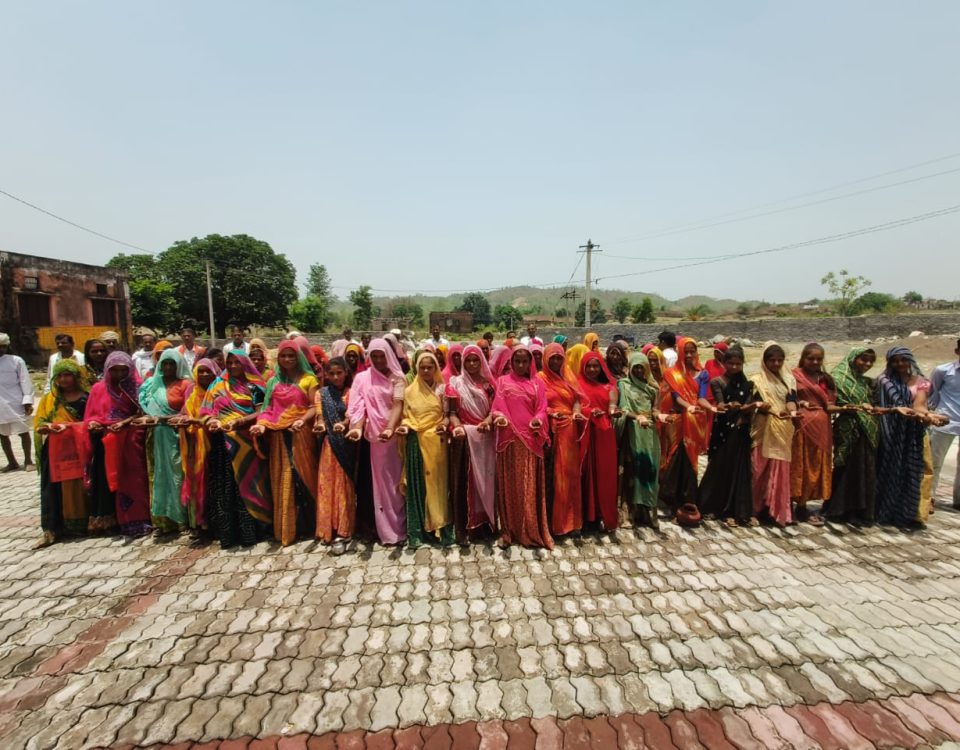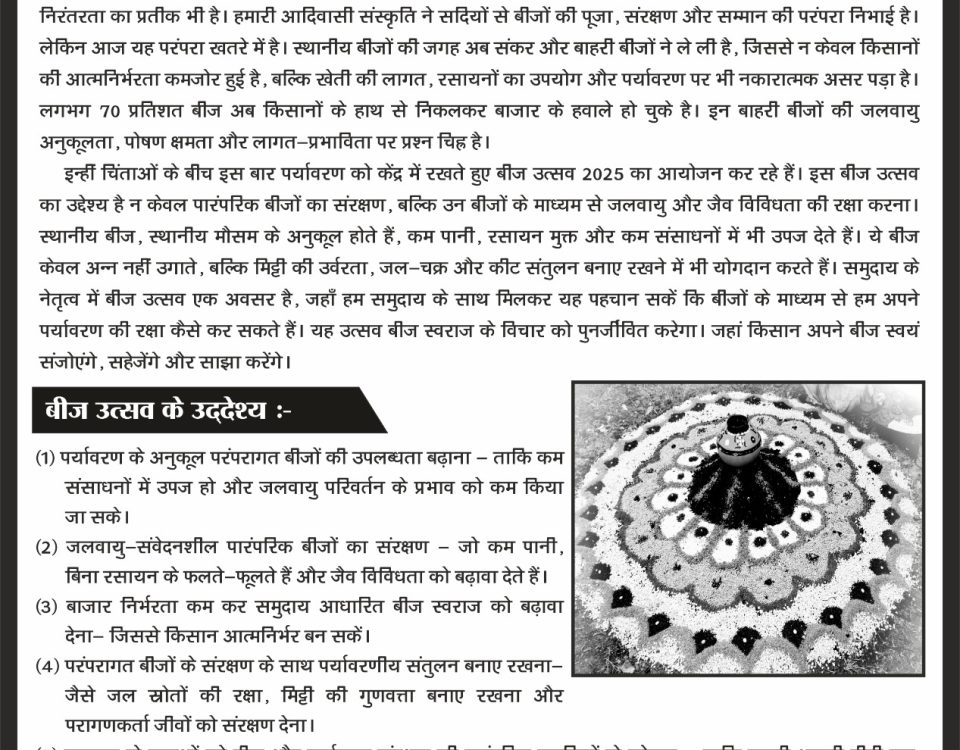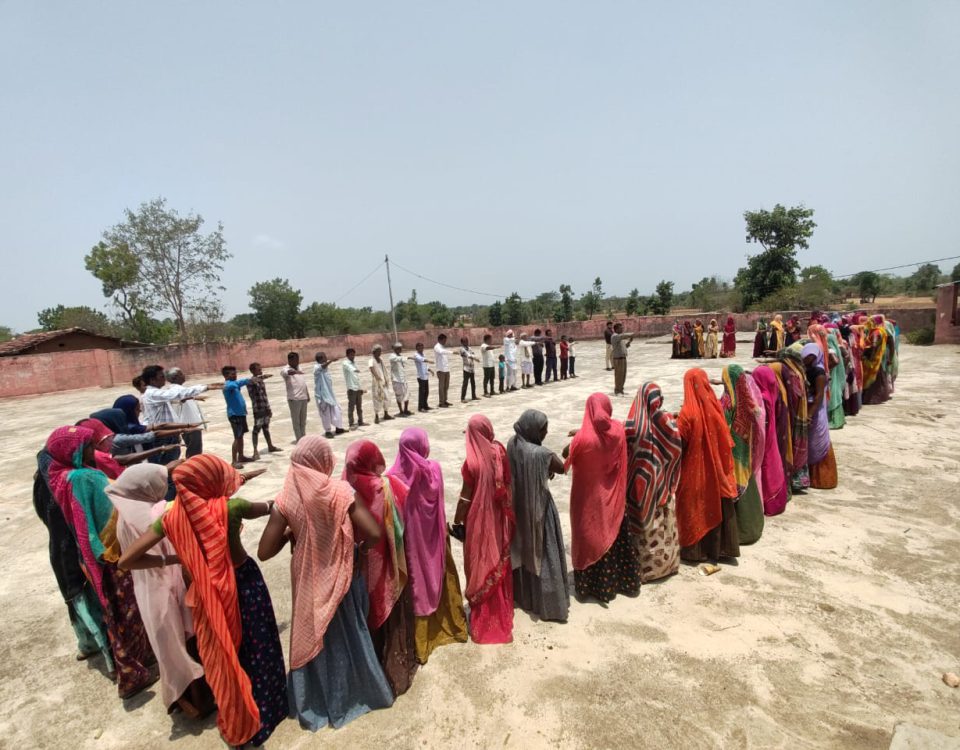
National Girl Child Day 2017
January 24, 2017
Child safety committee knocked on the collectors� door
February 21, 2017Extreme poverty in the world has decreased considerably in the past three decades. In 1981, more than half of citizens in the developing world lived on less than $1.25 a day. This rate has dropped dramatically to 21 percent in 2010. However 1.2 billion people living in extreme poverty (in 2010) is still an extremely high figure, and India contributes to one third of this statistic. United Nation�s latest Millennium Development Goals Report suggests that despite all economic reforms and other measures taken by the government, India could only manage to reduce its poverty rate from 49.4% in 1994 to 42% in 2005 and 32.7% in 2010. Other statistics suggest that India also accounted for the highest number of under-five deaths in the world in 2012, with 1.4 million children not reaching their fifth birthday. This is a particularly unfortunate situation for a country that claims to be the third largest economy of the world (in PPP terms) and a rising super-power in the continent. The country has definitely made strides in reducing poverty; however the task ahead remains herculean.
The 55th Session of Commission for Social Development was an attempt focused on strategies for eradicating poverty to achieve sustainable development for all during the two-year review and policy cycle for the 2017 and 2018 sessions. The priority theme for the 2017-2018 review and policy cycle included the �Strategies for the eradication of poverty to achieve sustainable development for all�. This expert meeting was organized to provide expert inputs to prepare for this important task. The outcomes of the meeting will provide important inputs to the Report of the Secretary-General on the priority theme by providing concrete, evidence-based reviews of poverty eradication strategies, highlighting those strategies that have been effective and those that have not and will draw lessons that will spur efforts to eradicate poverty within the context of the 2030 Agenda for Sustainable Development.
Considering the priority theme of the event, VAAGDHARA being an UN ECOSOC accredited organization, made efforts in submitting the Written and Oral Statement and organized the Side Event during the 55th Session of Commission for Social Development. The written and oral statements submitted by VAAGDHARA are accepted and published online in the UN Documentation System.
The Oral statement recommended the actions that go beyond the domain of economic development and talk about tribal rights, social security, women empowerment and food and nutrition security to eliminate poverty. It also recommended the need to ensure tribal sovereignty and maintain their dignity as one of the key integrated themes for all poverty attacking actions.
The Written Statement submitted by VAAGDHARA was an attempt to analyze the key causes of poverty in India and evaluated the government�s response to these challenges. The document also shared VAAGDHARA�s experience of working with the poor tribal areas of Rajasthan, Gujarat and Madhya Pradesh and recommended practical strategies (based on the experience of organization) to address the poverty conundrum through cost � effective and locally available resources. Below are the recommendations for poverty eradication given by VAAGDHARA:-
- Communication strategies should be appropriately chosen keeping in view the target community�s access to various modes/ means of communication.
- Wage employment aside, focus should be placed on making agriculture and allied activities more profitable and sustainable. The state heads should develop the pro-poor sensitive market and SDG implementation policies for the equitable growth among all sections of society.
- Volunteerism among local community (especially among educated youth) needs to be promoted to strengthen the local bodies and other institutions, and to create demand for services.
Another effort made by VAAGDHARA during the 55th Session of Commission for Social Development was organizing the Side Event on �Issues, Challenges and Strategies for Eradication of poverty among the Indigenous Community in context of Sustainable Development Goals�. It was organized with the aim of bringing critical perspectives and experiences from grassroots to the forum. The Side Event witnessed the participation of more than 25 civil society representatives and country delegates. The event was moderated by Mr. Jayesh Joshi, Secretary, VAAGDHARA and the speakers included Mr. Mahendrajeet Singh Malviya, Ex Rural Development Minister and Member of Legislative Assembly, Rajasthan, and Mr. Jeffry Huffines, UN Representative of CIVICUS.
In order to bring perspectives from the community, VAAGDHARA has conducted a research study on �The Reasons of Trans � generational poverty: Tribal Community Perspective� and shared the findings and recommendations of the study during the event. The recommendations of the study include the following:-
- While keeping in view the indigenous knowledge and learning methodologies, youth should be empowered with latest digital and technical knowledge in order to enter the mainstream of development.
- Natural Agricultural practices should be used instead of artificial and market oriented farming so that the dependency on the market can be reduced.
- The focus should be given on indigenous seed security and sovereignty.
- Forest Rights of tribes should be ensured as earlier the forests were owned, promoted and protected by the tribes only.
- Government investment should be increased for the tribal families, mainly in soil and water conservation and irrigation activities in a sustainable manner.
- The Indigenous breeds of livestock need to be promoted and protected.
- Electricity should be made available in the areas equivalent to the urban areas.
Subscribe to our newsletter!


